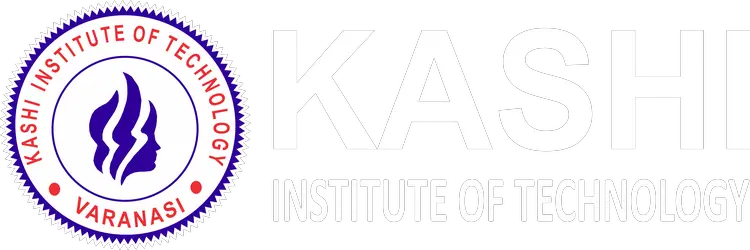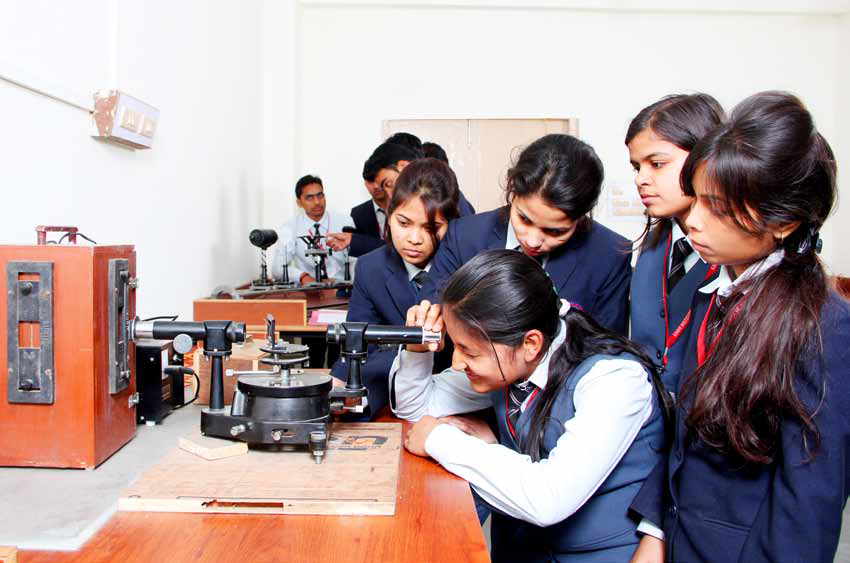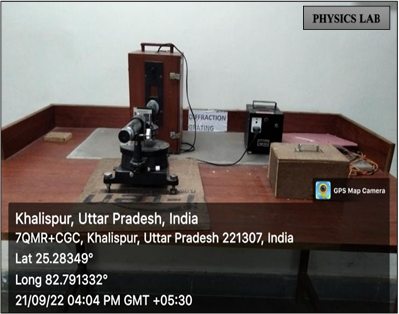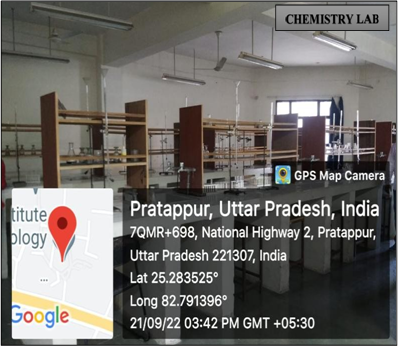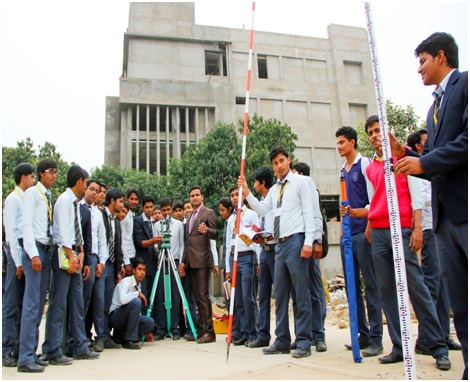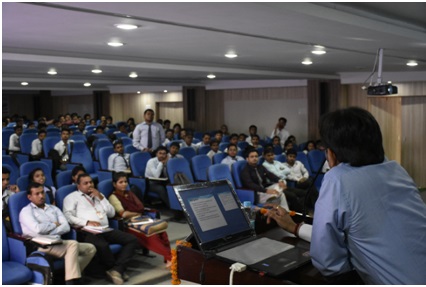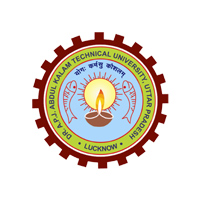OVERVIEW
 Department of APPLIED SCIENCES & HUMANITIES
Department of APPLIED SCIENCES & HUMANITIES
Department of Applied Sciences and Humanities is one of the indispensable department of the “the “Kashi Institute of Technology”. It imparts excellent quality education in the area of Applied Sciences (Mathematics, Physics and Chemistry) and Humanities (“Professional Communication”, “Human values, Professional Ethics & Environmental Science”) for the future technocrats of all streams (CS, EC, IT, EN, CIVIL ,ME and Biotech). The department of Applied Sciences and Humanities aims to provide a strong foundation in the fundamental sciences. Students of engineering are provided with the basic tools of analysis as well as the knowledge of the principles on which engineering is based. The department also strives to instill the scientific temper and the spirit of enquiry in students. It encourages the students to understand and therefore apply the physical laws to the development of their fields of study .The Department has well equipped laboratories for physics ,Chemistry and Communication Skills. The Department of Applied Sciences and Humanities is responsible for strengthening the fundamental aspects and developing the overall personality of the aspiring engineers. The department can boast of its highly qualified, experienced and dedicated faculty.
DEPARTMENT OF APPLIED SCIENCE & HUMANITIES
Vision
To educate undergraduate students in field of applied science, preparing sincere and socially responsible students to thrive and contribute to an ever- changing global society.
Mission
*To provide strong foundation to the students through basic courses and value added teaching in areas of technical field, innovation, personality development & competitive abilities and guide for their respective discipline.
*To provide students with a flexible yet solid learning infrastructure through proactive and adaptive service systems.
*To create and propagate knowledge and tools at the interfaces between areas of engineering, emerging trends of industries and other core areas of Applied Sciences and Humanities.
PROGRAM EDUCATIONAL OBJECTIVES (PEOs):
Program Educational Objectives (PEOs) are statements that describe the career and professional accomplishments that the program is preparing the graduates to achieve. PEO’s are measured 4–5 years after graduation. They are set in order to measure the effectiveness of the program and to check whether it has prepared the students to deal with the real world, where they could apply and use the skills and knowledge they’ve learned to good use.
PEO1 – PROFICIENT DEVELOPMENT
To develop in the students the capacity to obtain knowledge on Mathematics, Science and Engineering and apply it expertly inside sensible requirements, for example, financial, natural, social, political, moral, wellbeing and security, manufacturability and manageability with due moral obligation.
PEO2-CORE PROFICIENCY
To provide ability to recognize, plan, appreciate formulate, comprehend, analyze, design and solve engineering problems with hands on experience in different advancement involving modern tools necessary for engineering practice to fulfill the necessities of society and the business.
PEO3 – SPECIALISED ACHIEVEMENT
To furnished the students with the capacity to explore, reenact, design, simulate, experiment, analyze, optimize and interpret in their core applications through multi disciplinary ideas and contemporary figuring out how to incorporate them into industry prepared graduates.
.PEO4 – PROFESSIONALISM
To provide training, exposure and awareness on importance of soft skills for better career and holistic personality development as well as professional attitude towards ethical issues, team work, responsibility, accountability, multidisciplinary approach and capability to relate engineering issues to broader social context.
PEO5 – LEARNING ENVIRONMENT
To furnish students with an academic environment and make them mindful of greatness, foster the desire of revelation, imagination, creativity, authority, composed moral codes and rules and the long lasting figuring out how to turn into an effective expert in scientific region.
PROGRAM OUTCOMES (POs)
PO-1. Scientific knowledge: Apply the knowledge of mathematics, science, Scientific Fundamentals, and scientific specialization to the solution of complex scientific problems.
PO-2. Problem analysis: Identify, formulate, research literature, and analyze scientific problems to arrive at substantiated conclusions using first principles of mathematics, nature, and sciences.
PO-3. Design/development of solutions: Design solutions for complex scientific problems and design system components, processes to meet the specifications with consideration for the public health and safety, and the cultural, societal, and environmental considerations.
PO-4. Conduct investigations of complex problems: Use research-based knowledge including design of experiments, analysis and interpretation of data, and synthesis of the information to provide valid conclusions.
PO-5. Modern tool usage: Create, select, and apply appropriate techniques, resources, and modern scientific tools including prediction and modeling to complex activities with Understanding of the limitations.
PO-6. Scientific temper and society: Apply reasoning informed by the contextual knowledge to assess societal, health, safety, legal, and cultural issues and the consequent responsibilities relevant to the practice.
PO-7. Environment and sustainability: Understand the impact of the professional scientific Solutions in societal and environmental contexts, and demonstrate the knowledge of, and need for sustainable development.
PO-8. Ethics: Apply ethical principles and commit to professional ethics and responsibilities and norms of the work practice.
PO-9. Individual and team work: Function effectively as an individual, and as a member or leader in teams, and in multidisciplinary settings.
PO-10. Communication: Communicate effectively with their community and with society at large. Be able to comprehend and write effective reports documentation. Make effective presentations, and give and receive clear instructions.
PO-11. Project management and finance: Demonstrate knowledge and understanding of scientific and management principles and apply these to one’s own work, as a member and
leader in a team. Manage projects in multidisciplinary environments.
PO-12. Life-long learning: Recognize the need for, and have the preparation and ability to engage in independent and life-long learning in the broadest context of technological change.
PROGRAM SPECIFIC OUTCOMES (PSOs):
The graduates of the department will attain:
PSO1: Problem tackling ability
Graduates will actually want to apply the capacity to break down, plan and carry out application explicit electronic framework for complex designing issues for simple, advanced area, correspondences and sign handling applications by applying the information on essential sciences, designing arithmetic and designing basics.
PSO2: Professional Skill
Graduates will actually want to foster quick changes in apparatuses and innovation with a comprehension of cultural and biological issues pertinent to proficient designing practice through long lasting learning.
PSO3: Successful Career
Graduates will actually want to have great versatility to work in multi-disciplinary workplace, great relational abilities as a forerunner in a group in enthusiasm for proficient morals and cultural obligations.
Course Outcomes(COs):
Hod’s Message
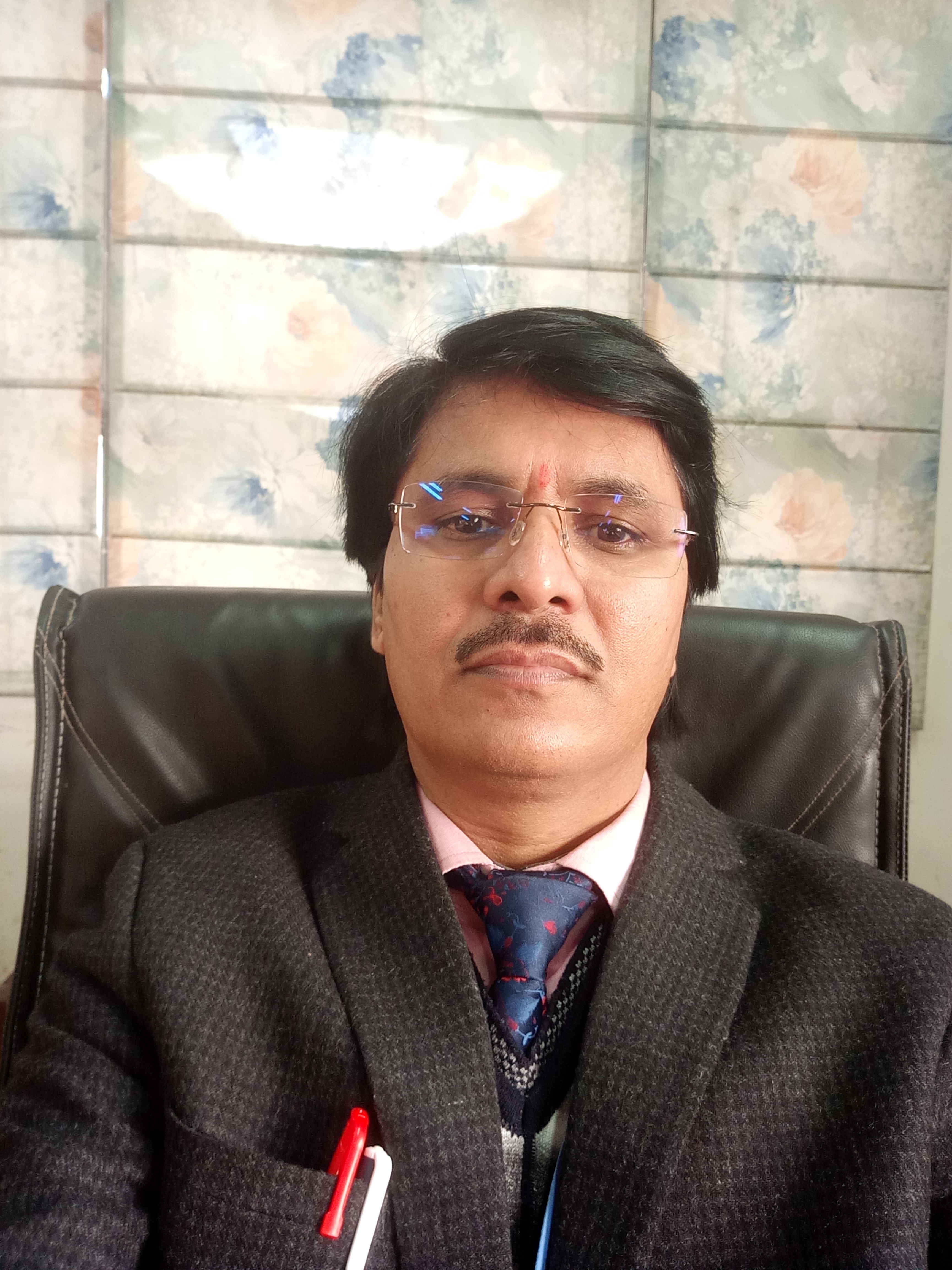
Dr. R. K. Singh
Aim of Applied Science Department is to provide strong foundation in the fundamental science. Students of engineering are provided with basic tools of analysis as well as knowledge of principles on which engineering is based. Applied Sciences develops scientific temper and spirit of enquiries in students. With the help of this art student can apply physical laws to the development of their fields of study.
